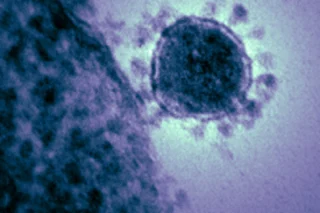The novel coronavirus is shown in this colorized transmission electron micrograph. Image courtesy of NIAID/RML Beth Fischer A virus related to SARS has claimed its sixth victim, officials announced yesterday. A British man has died of the coronavirus, called HCoV-EMC, which was first identified last year. There have been a total of 12 cases of the coronavirus in the UK, Saudi Arabia and Jordan. Now in a new study researchers have actually quantified the infection rate of the new virus. Results show that at a cellular level EMC is as efficient at infecting human cells as the common cold. Scientists isolated cells from the lining of three healthy people's airways and cultured them in the lab, then introduced EMC, SARS, and a common cold virus to different groups of cells. They found that EMC did indeed replicate in the airway cells (this tissue is especially vulnerable, which explains why infected ...
New SARS-Like Virus is Well-Equipped for Infecting Humans
Discover insights on the novel coronavirus infection rate and how it compares to common cold viruses. Learn about its immune evasion strategies.
More on Discover
Stay Curious
SubscribeTo The Magazine
Save up to 40% off the cover price when you subscribe to Discover magazine.
Subscribe













